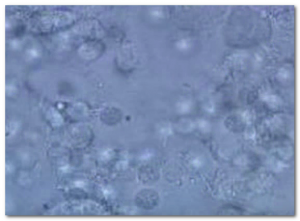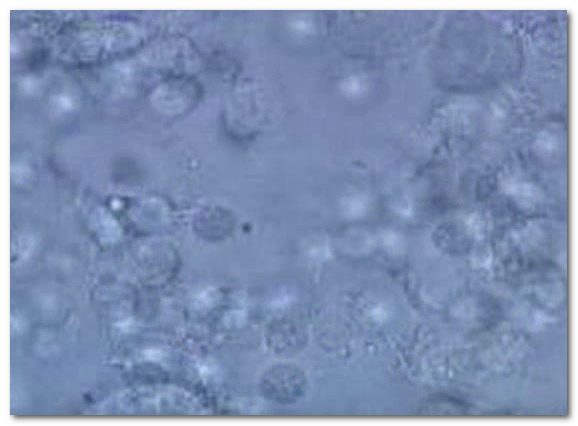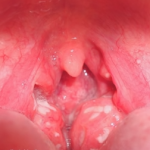Leukocytes are white blood cells. Small quantities of leukocytes, which are damaged and old cells, are eliminated from the body along with urine. Thus, their presence in urine is normal on most occasions.
The presence of nitrates in a urine test is an indication of a urinary tract infection (UTI), especially by E. coli and other gram negative bacteria. It may however be noted that presence of leukocytes in urine without nitrates can also be an indication of a UTI. This is especially true when the levels of leukocytes detected in urine is excessive and above the normal levels.
When the levels of leukocytes in urine fall between 0 and 10 lev/vl, then it is considered as normal. However, when it exceeds 20 lev/vl, then it is best to diagnose the underlying cause and get relevant treatment so as to avoid the development of health complications.
Symptoms
Some of the signs and symptoms that patients may experience along with detection of leukocytes in urine without nitrates are listed below:
- Fever along with tremors or shivering
- Elimination of cloudy and smelly urine
- Presence of blood in urine
- Urge to urinate on a frequent basis
- Bladder tumor
- Inflammation or swelling of the kidneys
- Painful or burning sensations when passing urine
- SLE or systemic lupus erythematosus
Leukocytes in Urine – No Nitrates (Causes)

Some of the common causes of leukocytes in urine without nitrates are listed below:
- Obstructions in the urinary tract may trigger the onset of a condition called hematuria, i.e., elimination of blood in urine. Such blood tends to have increased number of leukocytes. Urinary system blockages can occur due to varied factors such as pelvic tumor, bladder stone, kidney stone, trauma, prostate hypertrophy, or presence of foreign substances in the tract.
- Pyelonephritis and other such infections of the kidneys are marked by presence of leukocytes in urine. The infection usually begins in the urinary tract and eventually makes its way up to the kidneys. People with a compromised immune system as well as those using a urinary catheter for a long time are at increased risk to developing kidney infections.
- The body undergoes numerous biological and hormonal changes during pregnancy. Hence, it is common for pregnant women to suffer from leukocytes in urine as well as protein in urine which gets passed from the vagina. However, if the above conditions persist or if abnormal quantities of leukocytes are detect in urine, then affected women must seek medical attention and check for any underlying bladder infection.
- Withholding urine or avoiding voiding the bladder for prolonged periods can overstretch the bladder and cause it to become weaker. Such a weakened bladder may lose its ability to completely expel urine from the body. Such urine which is left behind in the bladder is prone to infections and subsequent elimination of leukocytes in urine.
- Excess leukocytes in urine may also occur due to an underlying case of cystitis, i.e., ureters and urinary tract inflammation, and/or infections of the bladder.
- During sexual intercourse, it is possible for bacteria to transfer from the infected partner to the urethra of the healthy person. This can result in infections and leukocytes in urine.
Women are more prone to developing UTIs and subsequently leukocytes in urine. This is because of their genital anatomy marked by the close proximity of the anus to the vagina.
Diagnosis
Leukocytes in urine can be detected with the help of a urinalysis.
Patients can make use of a urine home test kit and check for the presence of leukocytes, nitrates, and protein, etc. in urine. You can also submit a urine specimen for testing at a lab. The urine sample will undergo visual, microscopic, and chemical tests in the lab for determination of the overall health of the patient.
Excess leukocytes in urine can be detected by observing the urine sample under a microscope, or by carrying out a chemical dip stick test which shows the presence of esterase enzyme released by WBCs.
Treatment
Treatment of leukocytes in urine in dependent on diagnosis of the underlying cause.
- Most instances of urinary tract infections are treated and completely cured with antibiotics. People can avoid UTIs by making sure of preventing the above mentioned causes. Patients may consult a doctor for advice on how to prevent worsening of a UTI as well as the onset of complications.
- Severe instances of leukocytes in urine may require hospitalization.
- Following good personal hygiene is key to avoiding UTIs. Change the towels and undergarments on a daily basis. Soak the undergarments, etc. in some disinfecting solution before they are put to wash so as to kill all pathogens which may be present.
- Regular exercising, intake of a healthy diet, and certain lifestyle changes such as quitting smoking can help boost the immune system and help prevent infections and leukocytes in urine.

